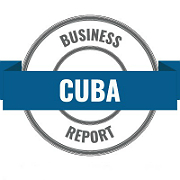The existing US embargo against Cuba is still creating immense financial and banking problems for Cuba. While most people believe that all is “rosy” with all the “feel good” news stories such as the Obama visit, fashion, celebrities, rock stars and the recent cruise, it’s actually a method of economic strangulation by the US government. According to U.S. Treasury Department’s Office of Foreign Assets Control (OFAC), their online document states:
“The basic goal of the sanctions is to isolate the Cuban government economically and deprive it of U.S. dollars. Criminal penalties for violating the sanctions range up to 10 years in prison, $1,000,000 in corporate fines, and $250,000 in individual fines. Civil penalties up to $55,000 per violation may also be imposed.
… There is a total freeze on Cuban assets, both governmental and private, and on financial dealings with Cuba; all property of Cuba, of Cuban nationals, and of Specially Designated Nationals of Cuba in the possession or control of persons subject to U.S. jurisdiction is “blocked.”
… Banks receiving unlicensed wire transfer instructions in which there is a Cuban interest, or any instrument in which there is a Cuban interest, must freeze the funds on their own books or block the instrument, regardless of origin or destination.”
As most international banking transactions are processed through New York City, any banking transactions involving Cuba are held and frozen there. This makes it very difficult for the Cuban government to conduct business and make payments.
As of today’s date, Stonegate Bank in Pompano Beach, Florida is only bank in the U.S. which has a correspondent banking relationship with the Cuban central bank. Most of the big banks fear to tread there because of the financial risk of the huge fines levied by the U.S. Treasury Department. With the ongoing U.S. embargo, Stonegate Bank’s transactions with Cuba still have to go through a third country institution. This makes it a huge challenge for U.S. businesses and Cuba.
According to the most recent polls, most Americans and American businesses want the embargo lifted, but it will take an act of Congress to eradicate this internationally unpopular policy.
According to the Cubadebate website:
Cuba and its financial institutions are still unable to use the US dollar for certain transactions, despite the announcement of the US administration.
Cubadebate, which today published statements by a senior official of the Foreign Ministry, said that nearly two months after the US government announced Cuba could use the US dollar, the country is still unable to perform any banking transaction with the currency.
On March 15, the US Treasury and Commerce departments removed some of their bans on the currency, a decision which was originally intended to enter force the following day, shortly before President Barack Obama’s visit.
The National Association of Small Farmers (ANAP) also issued a statement on the decision of the US State Department to include coffee on the list of Cuban products, from the non-state sector, which could be imported into the US.
The ANAP highlighted that in order to do so, among other conditions, they would need to carry out financial transactions in dollars, which they have so far been unable to do.
Cubadebate added that Cuban financial institutions are not allowed to have corresponding banks in the United States, which increases the cost and unnecessarily extends proceedings, even when Cuba uses currencies other than US dollar.
Before Obama’s visit to Havana, Cuba announced it would remove the tax of 10 percent to the dollar entering the country, but only when there are no longer limitations against Cuban organizations making financial transactions in the currency.
News Source: Prensa Latina News Agency

From our staff writers and editors.













